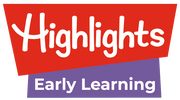What are the Benefits of Reading to Preschoolers?
Experts advise it’s never too early to begin reading to a child. In fact, many recommend reading to babies while they’re still in the womb because hearing the cadence of a familiar voice can be soothing and introduce the building blocks of language.
The same premise applies in early childhood education: it’s never too early to start reading!

Reading to preschoolers is an exceptional way to develop their learning skills, establish a strong student-teacher bond, and model important interpersonal characteristics such as empathy.
Learning Skills
Reading to preschoolers is like flipping on a light switch in their brains. The light illuminates everything from their budding language skills to their emerging cognitive development, effectively creating space for new information.
From a scientific standpoint, the benefits of reading to preschoolers detailed by a study of early brain development explains the many neurological benefits of reading aloud to young children: “A childcare provider reads to a toddler. And in seconds, thousands of cells in these children’s growing brains respond. Some brain cells are ‘turned on,’ triggered by this experience. Many existing connections among brain cells are strengthened. At the same time, new brain cells are formed, adding a bit more definition and complexity to the intricate circuitry that will remain largely in place for the rest of these children’s lives.”
In short, the more stories they hear, the more potential children have to learn.
Furthermore, reading to preschoolers exposes them to new words and sounds, building their vocabulary. While this may seem insignificant compared to the impressive “intricate circuitry” of the brain, having an extensive vocabulary is a good indicator of academic success. In fact, “the more words that are in a child’s language world, the more words they will learn, and the stronger their language skills are when they reach kindergarten, the more prepared they are to be able to read, and the better they read, the more likely they will graduate from high school” (PBS.org).
Literacy skills are an integral part of learning at any age, but especially as students get older and are challenged more in school. Early reading hones literacy skills early in a student’s education, setting them up for future success.
Student-Teacher Bond
There’s something deeply personal about sharing stories; it summons new emotions and ways of thinking. When students and teachers regularly connect over such an experience, it cements that ever-important student-teacher bond. Because books allow readers to understand things without ever experiencing them firsthand, they offer an open and safe space for children to learn and share. The feeling of safety is a basic human need, and another fantastic way to bring student and teacher closer.
Reading aloud to preschoolers also opens the door to other discussions that organically go beyond the text and make connections to the children’s lives. Reading about a character who experiences anxiety, for example, can encourage a student to talk about something that is worrying them.
Keisha Siriboe, a Baltimore-based early childhood literacy consultant with a Ph.D. in early childhood education, says “reading aloud can help people with stress management, hope, and resilience.” She adds, “Reading aloud is the best bang for your buck, [I haven’t] seen anything yet that gives a higher return on investment.”
Reading to preschoolers exposes them to different situations within the safe confines of a book, making it easier to address social, emotional, and mental health in a way that is comfortable and makes more sense for kids.
Interpersonal Character Traits
The healthy social and emotional development of a child lends itself to interpersonal successes as an adult. For example, reading to preschoolers is a great way to explain what it means to be a good friend, laying the groundwork for strong relationships in the future. The Child Mind Institute encourages sharing stories about those who are different because children “gain an appreciation for other people’s feelings, as well as other cultures, lifestyles, and perspectives.” Living vicariously through the pages and making connections to what they’re reading helps children develop empathy.
Books also provide the language for children to name what they’re feeling. This kind of emotional validation is extremely important, especially as a child is learning how to express and manage their emotions.
Beyond social and emotional development, reading to children plants the seed of creativity, encourages them to use their imagination, and inspires a lifelong love of reading and learning.
Without ever leaving the classroom, books allow children to travel to different countries, experience new traditions, and begin naming their respective experiences.
Foster early childhood development and instill a love for reading in your youngest learners with the Highlights Hello Library 24-Book Box Set.
About the Author:

Stephanie Jankowski is an educator and author who lives in Pittsburgh, Pennsylvania. When she's not teaching or writing, she's spending time with her children, Brady, Ella, and Lyla, and marveling at just how short the years really are.

